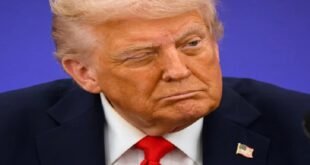11-04-2021
Bureau Report + Agencies
NEW DELHI: A ‘Tika Utsav‘ or vaccine festival is being organized in the country from today to inoculate maximum number of eligible people against the coronavirus amid a worrying surge in cases. The mass vaccination program – which will be conducted from April 11-14 – is being held following Prime Minister Narendra Modi’s appeal to the Chief Ministers of all states and union territories during a meeting over the coronavirus situation.
 The ‘Tika Utsav’ marks the beginning of the second big war on COVID-19, Prime Minister Narendra Modi said today as he made several suggestions to people on tackling the virus and urged them to focus on personal and social hygiene.
The ‘Tika Utsav’ marks the beginning of the second big war on COVID-19, Prime Minister Narendra Modi said today as he made several suggestions to people on tackling the virus and urged them to focus on personal and social hygiene.
In a statement, he urged people to keep four things in mind, including “each one, vaccinate one”, “each one, treat one” and “each one, save one”.
Several states such as Uttar Pradesh and Bihar have ramped up their efforts to double inoculations and have appealed people to get them vaccinated during the four-day program.
On the other hand, India says it has become the “fastest country in the world” to administer more than 100 million doses of coronavirus vaccines, amid a deadly second wave of infections.
It achieved the feat in 85 days, whereas the US took 89 days and China 102 days, the health ministry said but the country reported a record daily increase of over 150,000 cases – and more than 800 new deaths – on Sunday.
And there are reports the vast vaccination drive itself is struggling.
This week, half a dozen states reported a shortage of doses even as the federal government insisted that it had 40 million doses in stock and that the “allegations” of vaccine scarcity were “utterly baseless”.
The inoculation drive aims to cover 250 million people by July, but experts say the pace needs to pick up further to meet the target.
Everyone aged over 45 is now eligible for jabs at vaccination centres and hospitals. Most doses have so far been given to frontline workers and the over-60s.
Since the pandemic began, India has confirmed more than 12 million cases and over 167,000 deaths. It has the third-highest number of Covid-19 infections in the world after the United States and Brazil.
How is the vaccine rollout going?
The country’s drugs regulator has given the green light to two vaccines – one developed by AstraZeneca with Oxford University (Covishield) and one by Indian firm Bharat Biotech (Covaxin). Several other candidates are at different stages of trials.
India launched its vaccination drive on 16 January, but it was limited to healthcare workers and frontline staff – a sanitation worker became the first Indian to receive the vaccine.
From 1 March, the eligibility criterion was expanded to include people over 60 and those aged between 45 and 59 with other illnesses.
The third phase, which began on 1 April, includes everyone above the age of 45.
India also wants to scale up the drive quickly to stem the recent spike in cases. So it placed a temporary hold on all exports of AstraZeneca, which is being made by India’s largest vaccine manufacturer, the Serum Institute of India (SII).
 The vaccine maker recently said its production capacity was “much stressed” and that it was “still short of being able to supply to every Indian”.
The vaccine maker recently said its production capacity was “much stressed” and that it was “still short of being able to supply to every Indian”.
Serum says it has been providing 65-70 million doses every month to India, and exported nearly an equal amount since it began production early this year.
The firm was aiming to boost production to 100 million doses a month. Now it says it would not be able to meet that target before the end of June because of time taken to repair damages from a fire at its facilities in the western city of Pune in January.
Experts believe India should ramp up vaccination in areas of high transmission and in five states where elections are being held.
Bhramar Mukherjee, a biostatistician at the University of Michigan, told the BBC that India needed to administer 10 million shots daily “instead of being complacent with three million” doses a day.
“I do feel frustrated that India did not roll out the vaccination drive more aggressively while the curve was in its valley,” Dr Mukherjee said.
How does India manage such a huge vaccination drive?
For decades now, the country has been running one of the world’s largest immunization programs that vaccinate tens of millions, including newborns and pregnant women, against various diseases.
So experts believed India was well-prepared for the challenge. But the uptake has been slow because of vaccine skepticism as well as a lack of awareness among the poor or in rural areas.
Many of the poor have little information on how to register themselves and access the vaccine free of cost. Eligible people can now book their jabs online or walk in and register at vaccination centers.
The government aims to use up to 500 million doses to cover 250 million “priority people” by the end of July.
Interestingly, in some states, more women than men have been vaccinated. The reasons are not clear.
 Who is paying for the vaccines?
Who is paying for the vaccines?
Vaccination is voluntary. State-run clinics and hospitals are offering free jabs, but people can also pay 250 rupees ($3.4; £2.4) a dose at private facilities.
Starting 11 April, people can get paid jabs at private and state-run workplaces.
The government is spending around $5bn to provide free doses at state-run clinics, public health centers and hospitals.
Have there been ‘adverse events’ after vaccination?
People can experience side effects from vaccines.
India has a 34-year-old surveillance program for monitoring “adverse events” following immunization. Experts say a failure to transparently report such incidents could lead to fear-mongering around vaccines.
Until early February, India reported 8,483 “adverse events” after vaccination. Most of these events were “minor” – anxiety, vertigo, giddiness, dizziness, fever, and pain – and all patients had recovered, the government said.
The surveillance program has examined 617 cases of “severe adverse events”, including 180 deaths after vaccination until 29 March, according to reports.
 Pressmediaofindia
Pressmediaofindia




